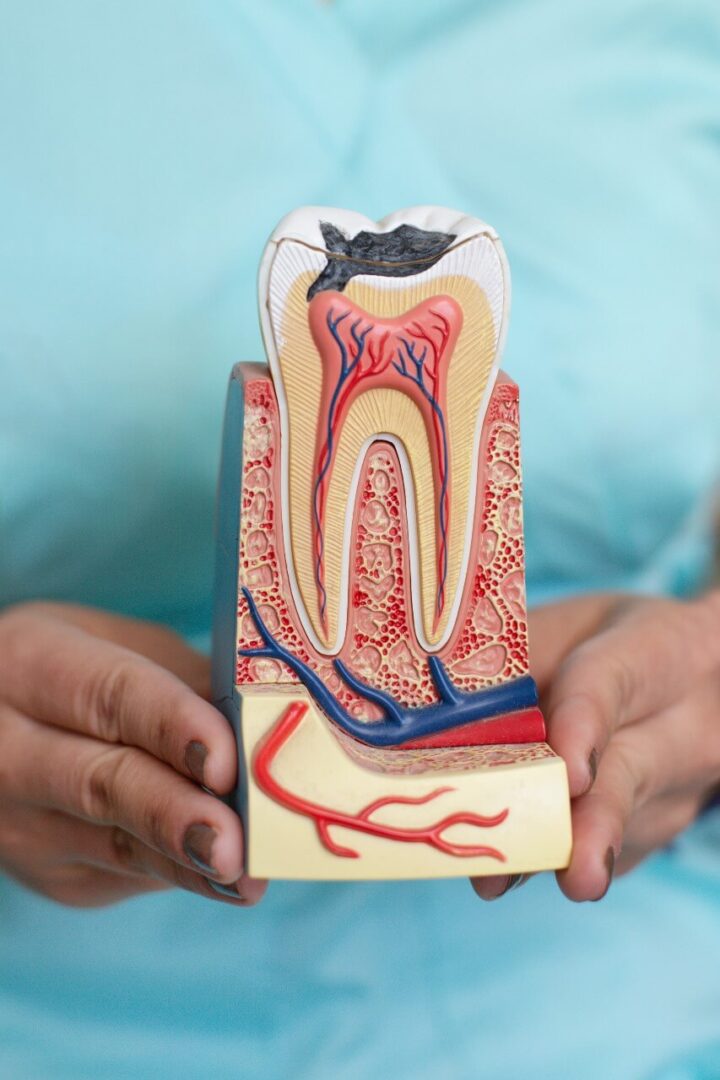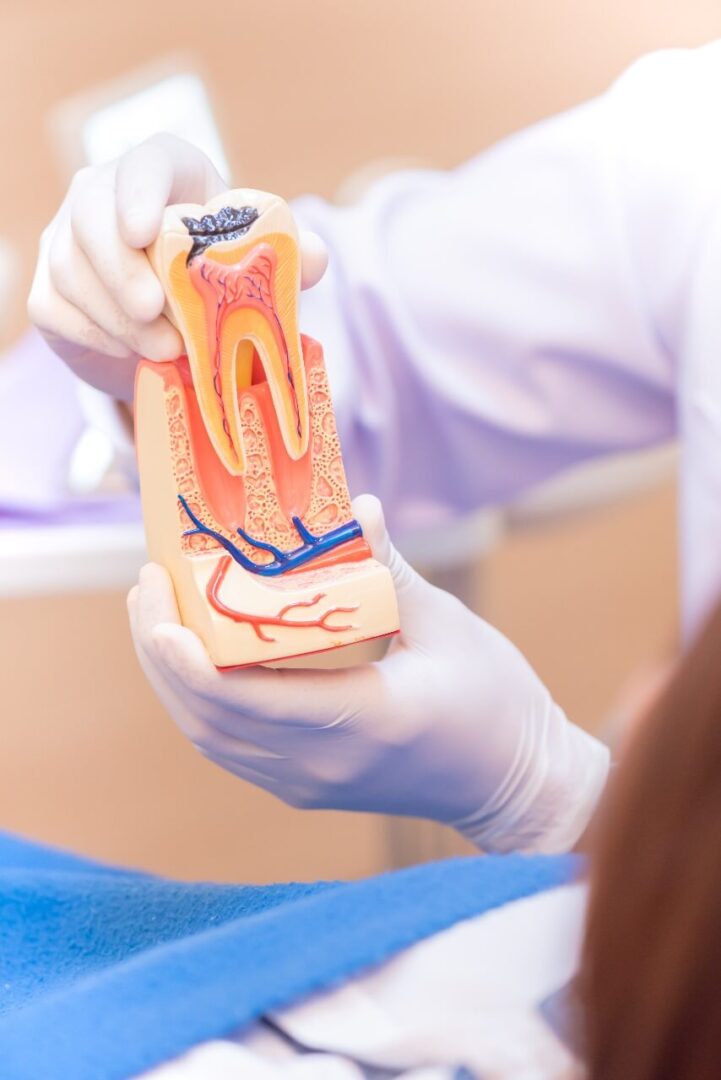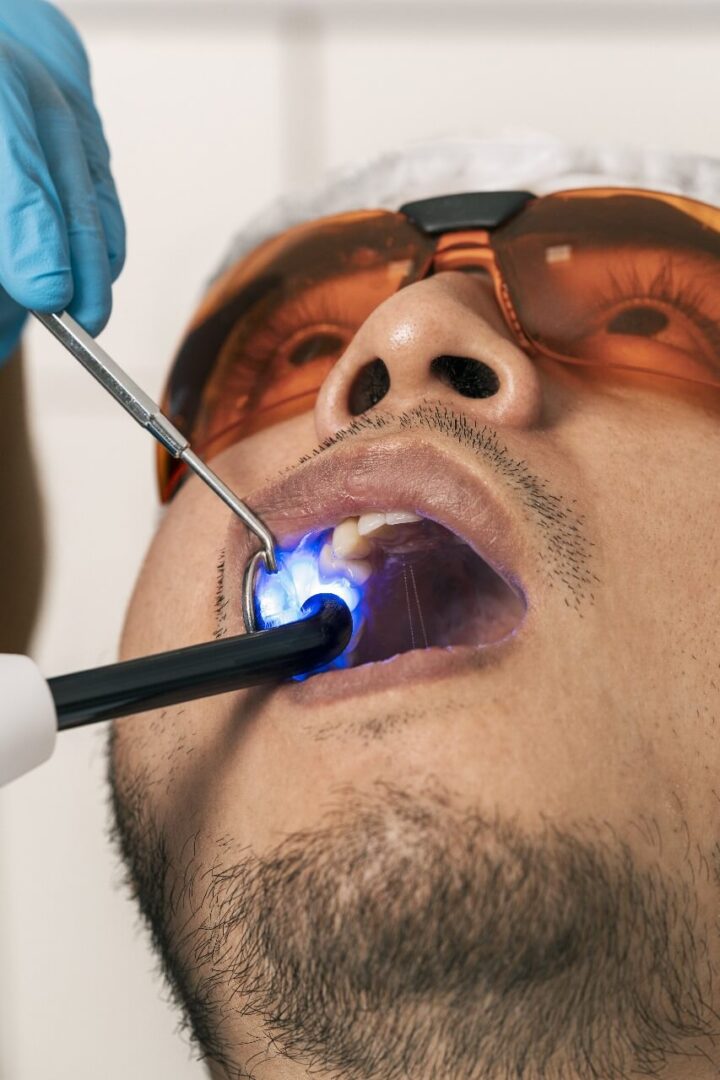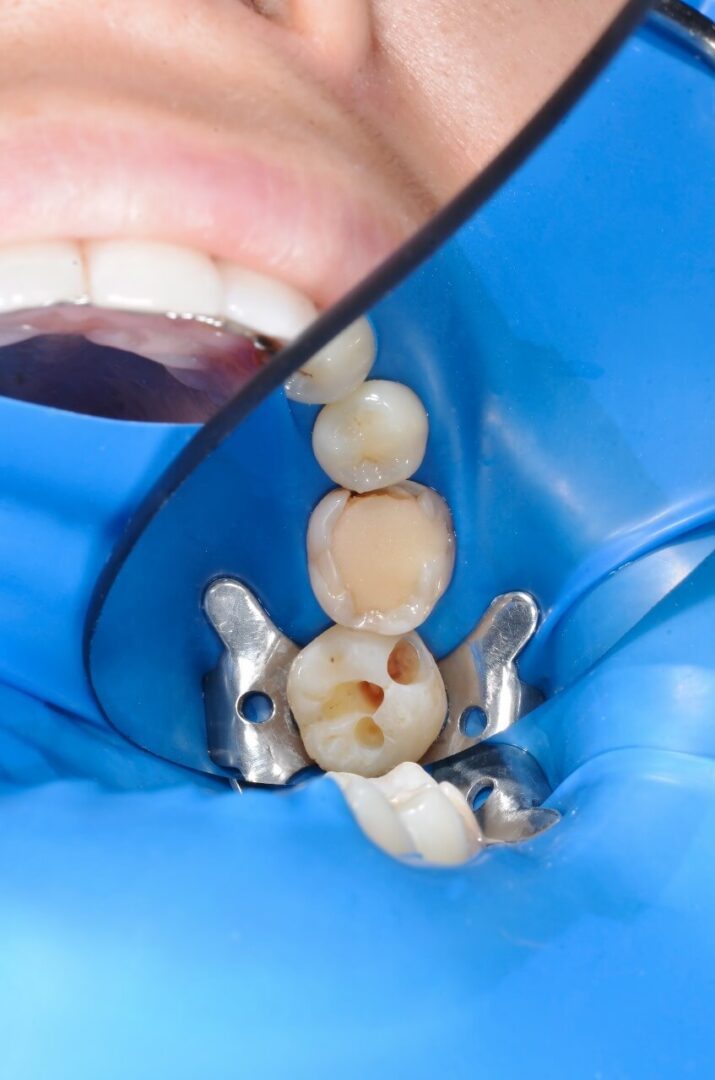Root Canal Treatment
Demystifying Root Canal Treatment: Everything You Need to Know
Root Canal Treatment
The mere thought of root canal treatment is enough to make some people squirm. Root canals are often misunderstood and shrouded in mystery. This procedure is often portrayed as painful and uncomfortable, but the truth is quite different. In reality, root canal treatment is a safe and effective way to save a damaged or infected tooth and prevent further oral health complications. If you are facing the prospect of a root canal, it’s important to understand what it involves and what to expect. In this post, we will demystify root canal treatment and provide you with everything you need to know, from the basics of the procedure to tips for choosing the right dentist. So, put your fears aside and read on to discover how root canal treatment can help restore your oral health.

1. What is a root canal treatment?
If you’ve ever experienced severe tooth pain or a persistent toothache, you may have heard the term “root canal treatment” being thrown around. But what exactly is a root canal treatment? Let’s demystify it.
A root canal treatment, also known as endodontic treatment, is a dental procedure performed to save a severely damaged or infected tooth. It involves the removal of the infected pulp from the tooth’s inner chamber, known as the root canal, and the subsequent cleaning, disinfection, and sealing of the canal to prevent further infection.
The root canal is the natural cavity inside the tooth that houses the pulp, which consists of nerves, blood vessels, and connective tissue. When the pulp becomes infected or inflamed due to deep decay, repeated dental procedures, a cracked tooth, or trauma, it can cause excruciating pain and lead to complications if left untreated.
During a root canal treatment, the dentist or endodontist carefully accesses the root canal, removes the infected pulp, and cleans the area thoroughly. They then shape the canal and fill it with a biocompatible material called gutta-percha, which seals off the canal and prevents reinfection. In some cases, a dental crown may be placed on the treated tooth to restore its strength and protect it from further damage.
Contrary to popular belief, root canal treatments are not painful. With modern advancements in dental techniques and anesthesia, the procedure is now relatively comfortable. In fact, the purpose of a root canal treatment is to alleviate pain and save the tooth from extraction, preserving your natural smile and oral health.
If you’re experiencing severe tooth pain or suspect that you may need a root canal treatment, it’s important to consult with a qualified dentist or endodontist. They will evaluate your condition, determine if a root canal is necessary, and guide you through the process to ensure the best possible outcome for your dental health. Remember, early intervention can prevent the need for more invasive procedures down the line.
In conclusion, a root canal treatment is a dental procedure aimed at saving an infected or damaged tooth. By removing the infected pulp and sealing the root canal, this treatment can alleviate pain, restore oral health, and preserve your natural smile. If you have concerns or questions about root canal treatments, don’t hesitate to seek professional dental advice.

2. Why is a root canal treatment necessary?
Root canal treatment, also known as endodontic therapy, is a dental procedure designed to save a tooth that has been severely damaged or infected. It is necessary when the pulp, which is the innermost layer of the tooth containing nerves, blood vessels, and connective tissues, becomes infected or inflamed.
There are several reasons why a root canal treatment may be necessary. Firstly, tooth decay that is left untreated can progress to the pulp, leading to an infection. Additionally, traumatic injuries to the tooth, such as cracks or fractures, can expose the pulp, making it susceptible to infection.
When the pulp becomes infected, it can cause excruciating pain and discomfort. Other symptoms may include sensitivity to hot or cold temperatures, swelling, and gum tenderness. If left untreated, the infection can spread to the surrounding tissues, leading to abscess formation and potential tooth loss.
Root canal treatment aims to remove the infected or inflamed pulp, clean the inner chamber of the tooth thoroughly, and seal it to prevent reinfection. By preserving the natural tooth structure, root canal therapy offers several advantages over tooth extraction, including maintaining proper chewing function, preventing neighboring teeth from shifting, and preserving the aesthetic appearance of the smile.
It’s important to note that root canal treatment is not a painful procedure, as it is often perceived. With modern advancements in local anesthesia and sedation techniques, the process is relatively comfortable for patients. Experienced endodontists utilize their expertise to ensure the procedure is efficient, effective, and minimally invasive.
In summary, a root canal treatment is necessary to save a tooth that has been compromised by infection or inflammation in the pulp. By addressing the underlying issue and preserving the natural tooth, this procedure offers patients a chance to maintain a healthy smile and avoid more extensive dental treatments.

3. Common signs and symptoms that indicate the need for a root canal treatment
When it comes to dental health, understanding the signs and symptoms that may indicate the need for a root canal treatment is crucial. While each case is unique, there are some common indications that should not be ignored.
One of the most apparent signs is persistent and severe tooth pain. This pain may be triggered by hot or cold temperatures, or even by gentle pressure while chewing. The intensity of the pain can vary, but if it is constant and unbearable, it is likely a sign that the tooth’s pulp is infected or damaged.
Another symptom to watch out for is prolonged sensitivity to hot or cold sensations. If you find yourself wincing or experiencing discomfort when consuming hot or cold food or drinks, it could be a sign that the nerve within the tooth is affected.
Discoloration of the tooth is also a potential indicator of deeper issues. If you notice a significant change in the color of a tooth, particularly if it turns darker or begins to develop a grayish hue, it may be a sign of pulp infection or damage.
Swelling and tenderness in the surrounding gums are additional symptoms that should not be ignored. Inflamed gums near the affected tooth can be a result of an infection spreading from the tooth’s pulp. This can cause discomfort, tenderness, and even visible swelling in the area.
Lastly, the presence of a persistent pimple-like bump on the gum near the tooth can indicate the need for a root canal treatment. This bump, known as a dental abscess, is a result of a bacterial infection that has spread from the tooth’s pulp to the surrounding tissues.
It is important to note that while these signs and symptoms may strongly suggest the need for a root canal treatment, only a professional dentist can provide an accurate diagnosis. If you experience any of these indications, it is crucial to seek dental attention promptly to prevent further complications and alleviate any potential discomfort.

4. The steps involved in a root canal procedure
A root canal procedure may sound intimidating, but understanding the steps involved can help demystify the process and alleviate any fears or concerns you may have. Here is a breakdown of the typical steps involved in a root canal treatment:
1. Initial Examination: The first step is an examination by your dentist or endodontist to determine the extent of the damage and whether a root canal is necessary. X-rays may be taken to help identify the affected tooth and assess the condition of the root canals.
2. Local Anesthesia: Before the procedure begins, a local anesthetic will be administered to numb the area around the affected tooth. This ensures that you feel little to no discomfort during the treatment.
3. Accessing the Pulp: Once the area is numb, your dentist will create a small access hole in the affected tooth to reach the pulp chamber and root canals. This is usually done using specialized dental instruments.
4. Cleaning and Disinfecting: The next step involves removing the infected or damaged pulp tissue from the pulp chamber and root canals. Specialized tools, including files and irrigation solutions, are used to thoroughly clean and disinfect the canals to eliminate any bacteria or debris.
5. Shaping the Canals: After the canals are cleaned, they are shaped using tiny files to create a smooth and tapered space for filling material. This step is crucial for ensuring proper sealing and preventing reinfection.
6. Filling the Canals: Once the canals are shaped, a biocompatible material called gutta-percha is placed into the canals to seal them. This material, along with a dental adhesive, helps to prevent bacteria from re-entering the tooth.
7. Restoring the Tooth: After the root canal is completed, the access hole created earlier will be filled with a temporary or permanent filling material. In some cases, a dental crown may be recommended to provide additional support and protection to the treated tooth.
8. Follow-up Care: It is essential to follow any post-treatment instructions provided by your dentist. This may include taking prescribed medications, practicing good oral hygiene, and scheduling a follow-up appointment to ensure proper healing.
While every root canal procedure may vary slightly depending on the individual case, these general steps outline the process involved. Remember, root canal treatment is performed to relieve pain, prevent further infection, and save your natural tooth. By understanding the steps involved, you can approach the procedure with confidence and prioritize your dental health.

5. The myths and misconceptions surrounding root canal treatment
Root canal treatment often gets a bad reputation due to various myths and misconceptions surrounding it. However, it’s important to separate fact from fiction in order to understand the true benefits and effectiveness of this dental procedure.
One common myth is that root canal treatment is extremely painful. In reality, the purpose of this procedure is to alleviate pain caused by an infected or damaged tooth. With modern advancements in anesthesia and pain management techniques, patients typically experience minimal discomfort during the procedure. In fact, the pain caused by the underlying infection is often far worse than any discomfort associated with the treatment itself.
Another misconception is that root canal treatment is not necessary if there is no visible pain or discomfort. However, this couldn’t be further from the truth. Sometimes, the infected tooth may not exhibit any symptoms initially, but the infection can gradually spread, causing severe pain and further damage to surrounding tissues. By addressing the issue early through a root canal, the tooth can be saved and the infection can be eliminated.
There is also a belief that root canal treatment is not effective and the tooth will eventually need to be extracted anyway. On the contrary, root canal treatment has a high success rate, with most treated teeth lasting a lifetime with proper care. By removing the infected pulp from the tooth and sealing it, the root canal procedure eliminates the source of infection and allows the tooth to function normally.
Lastly, some people believe that root canal treatment causes illness or contributes to systemic health problems. This notion originated from outdated and debunked research. Numerous scientific studies have proven that there is no evidence linking root canal treatment to systemic health issues. In fact, by saving the natural tooth, root canal treatment helps maintain proper oral health and prevents the need for more extensive dental procedures.
By dispelling these myths and misconceptions, it becomes clear that root canal treatment is a safe and effective solution for preserving a damaged tooth. It is essential to consult with a qualified dentist who can provide accurate information and address any concerns or questions you may have.

6. Does root canal treatment hurt? Dispelling the fear of pain
The fear of pain is one of the most common concerns when it comes to root canal treatment. Many people associate the procedure with excruciating pain and discomfort. However, it is important to dispel this fear and understand the reality of the situation.
First and foremost, it is essential to know that root canal treatment is performed under local anesthesia. This means that the area being treated will be completely numb, and you should not feel any pain during the procedure. The dentist will ensure that you are comfortable and pain-free throughout the entire process.
In addition to local anesthesia, advancements in dental technology and techniques have significantly improved the overall experience of root canal treatment. Dentists now have access to modern tools and instruments that make the procedure more efficient and less invasive. This results in reduced discomfort and a smoother treatment process.
Furthermore, it is crucial to understand that the pain associated with root canal treatment is often a result of the infection or inflammation in the tooth, rather than the procedure itself. By undergoing root canal treatment, you are actually alleviating the pain caused by the infection and preserving your natural tooth. It is a solution that aims to restore your oral health and eliminate the source of discomfort.
It is normal to experience some soreness or sensitivity after the procedure, but this can be managed with over-the-counter pain medication and will typically subside within a few days. It is important to follow your dentist’s post-treatment instructions and attend any recommended follow-up appointments to ensure proper healing.
Remember, root canal treatment is a highly effective and necessary procedure to save a damaged or infected tooth. By dispelling the fear of pain and understanding the steps involved, you can approach the treatment with confidence and prioritize your oral health. Trust in the expertise of your dentist and focus on the positive outcome that root canal treatment can provide – a pain-free smile and a healthy mouth.

7. Recovery and aftercare tips following a root canal treatment
After undergoing a root canal treatment, proper recovery and aftercare are crucial for ensuring a successful outcome. While the procedure itself may be complete, it is important to take care of your oral health in the days and weeks following the treatment. Here are some essential recovery and aftercare tips to keep in mind:
1. Follow your dentist’s instructions: Your dentist will provide you with specific instructions tailored to your case. It is important to follow these instructions diligently to promote healing and prevent any complications.
2. Take prescribed medications: Your dentist may prescribe pain medications or antibiotics to manage any discomfort or prevent infection. Make sure to take these medications as directed and complete the full course, if applicable.
3. Manage pain and swelling: Some discomfort, swelling, or sensitivity may be experienced after the procedure. Applying an ice pack to the outside of your face can help reduce swelling, while over-the-counter pain relievers can be taken to alleviate any pain or discomfort. However, always consult your dentist before taking any medication.
4. Avoid chewing on the treated tooth: The tooth that underwent the root canal may be sensitive and fragile, especially in the initial stages of recovery. It is important to avoid chewing on that side of your mouth until advised otherwise by your dentist.
5. Maintain good oral hygiene: Proper oral hygiene is essential for a successful recovery. Continue brushing your teeth twice a day and flossing daily, being careful around the treated tooth. Your dentist may also recommend antimicrobial mouth rinses to prevent infection.
6. Attend follow-up appointments: Regular follow-up appointments with your dentist are vital to monitor the healing process. These visits also allow your dentist to address any concerns or issues that may arise.
7. Watch for warning signs: While some discomfort and sensitivity are normal during the recovery period, it is important to be aware of any unusual symptoms. Contact your dentist if you experience severe pain, persistent swelling, excessive bleeding, or any other concerning symptoms.
By following these recovery and aftercare tips, you can promote healing, minimize discomfort, and ensure the long-term success of your root canal treatment. Remember, always consult your dentist for personalized advice and guidance throughout the recovery process.

8. Possible complications and how to avoid them
Root canal treatment is a common dental procedure designed to save and restore a severely infected or damaged tooth. While it is generally a safe and effective procedure, there are potential complications that may arise. However, by being aware of these complications and taking necessary precautions, you can minimize the risks and ensure a smooth and successful treatment.
One possible complication is the development of an infection after the root canal procedure. This can occur if the tooth was not completely cleaned and disinfected during the treatment or if there was an existing infection that was not fully eradicated. To avoid this, it is crucial to choose an experienced and skilled dentist who can thoroughly clean the root canal system and prescribe appropriate antibiotics if necessary.
Another complication that may occur is a fractured tooth. This can happen if the tooth was already weakened or if excessive force is applied during the treatment. To prevent this, your dentist may recommend placing a dental crown or other restorative options to strengthen the tooth and protect it from further damage.
Sometimes, a root canal-treated tooth may experience persistent pain or discomfort even after the treatment. This could be due to a missed canal, a cracked root, or a reinfection. In such cases, a retreatment or an apicoectomy, which involves removing the tip of the tooth’s root, may be necessary. Regular follow-up visits with your dentist are essential to detect any potential issues early on and address them promptly.
It is also important to note that some patients may experience temporary sensitivity or discomfort after the root canal treatment. This is a normal part of the healing process and usually subsides within a few days. However, if the pain persists or worsens, it is crucial to contact your dentist for further evaluation.
To avoid complications, it is essential to maintain good oral hygiene practices, including regular brushing, flossing, and professional cleanings. Additionally, avoiding chewing on hard or sticky foods and refraining from biting or grinding on hard objects can help protect the treated tooth.
By understanding the potential complications and following these preventive measures, you can increase the chances of a successful and problem-free root canal treatment. Remember to communicate openly with your dentist, ask any questions or concerns you may have, and adhere to their post-treatment instructions for optimal results.

9. The importance of saving natural teeth through root canal treatment
When it comes to dental health, preserving natural teeth should always be a top priority. Root canal treatment plays a crucial role in this regard, as it allows for the salvation of a tooth that may otherwise need to be extracted.
The importance of saving natural teeth cannot be overstated. Natural teeth contribute to proper chewing, maintain the structure of the jawbone, and provide an aesthetically pleasing smile. Losing a tooth can lead to various issues, including difficulty in speaking, shifting of adjacent teeth, and potential bone loss in the jaw.
Root canal treatment is a procedure aimed at removing the infected or damaged pulp within a tooth. Pulp, which consists of nerves, blood vessels, and connective tissue, can become infected due to deep decay, trauma, or other dental issues. This infection can cause severe pain, swelling, and even abscess formation.
By undergoing root canal treatment, the infected pulp is carefully removed, and the inside of the tooth is thoroughly cleaned and disinfected. Once the infected material is removed, the tooth is filled and sealed to prevent further infection. In many cases, a dental crown is placed on top of the treated tooth to provide additional protection and support.
The benefits of saving natural teeth through root canal treatment are numerous. Firstly, it allows for the restoration of oral functionality, enabling individuals to chew and speak properly. Secondly, it maintains the natural alignment of teeth and prevents adjacent teeth from shifting into the empty space left by an extracted tooth. Lastly, it helps preserve the jawbone structure, preventing potential bone loss and preserving facial aesthetics.
It is important to consult with a qualified dentist or endodontist to determine whether root canal treatment is the appropriate course of action for your dental condition. They will assess the extent of the infection and provide personalized recommendations for the best course of treatment.
In summary, root canal treatment is a valuable dental procedure that can save natural teeth from extraction. By preserving natural teeth, individuals can continue to enjoy the benefits of proper oral functionality, maintain a beautiful smile, and prevent potential complications that may arise from tooth loss.

10. Frequently asked questions about root canal treatment answered
Root canal treatment can be a daunting prospect for many people. However, understanding the procedure and its purpose can help alleviate any concerns or fears you may have. To provide you with a comprehensive understanding, let’s address some frequently asked questions about root canal treatment:
1. What is a root canal treatment?
Root canal treatment, also known as endodontic treatment, is a procedure performed by a dentist to repair and save a severely damaged or infected tooth. It involves removing the infected pulp from the tooth’s root canal, cleaning and disinfecting the area, and then sealing it to prevent further infection.
2. Why is a root canal treatment necessary?
Root canal treatment becomes necessary when the pulp inside a tooth becomes infected or inflamed. This can occur due to deep decay, repeated dental procedures on the tooth, cracks or chips, or trauma. If left untreated, the infection can spread, leading to abscesses, bone loss, and potential tooth loss.
3. Does root canal treatment hurt?
Contrary to popular belief, root canal treatment is typically not painful. Local anesthesia is administered to ensure you are comfortable throughout the procedure. Modern techniques and advancements in dental technology have made the process more efficient and comfortable for patients.
4. How long does a root canal treatment take?
The duration of a root canal treatment can vary depending on the complexity of the case. Generally, it can be completed in one to three appointments, each lasting about 90 minutes. Your dentist will evaluate your specific situation and provide you with a more accurate timeframe.
5. What happens after a root canal treatment?
After the root canal treatment, you may experience some sensitivity or discomfort, which can be managed with over-the-counter pain relievers. Your dentist may also prescribe antibiotics to prevent or treat any existing infections. It is crucial to follow proper oral hygiene practices and schedule regular dental check-ups to ensure the treated tooth remains healthy.
6. Are there alternatives to root canal treatment?
In some cases, extraction of the tooth may be considered as an alternative to root canal treatment. However, it is generally recommended to save your natural tooth whenever possible, as it provides better functionality and helps maintain the alignment of surrounding teeth.
By addressing these common questions, we hope to demystify root canal treatment and provide you with the information you need to make informed decisions about your dental health. Remember, consulting with a qualified dentist is essential to determine the best course of action for your specific situation.
We hope that our comprehensive guide on root canal treatment has helped demystify this commonly misunderstood dental procedure. By addressing the most common concerns and providing detailed information on the process, we aimed to alleviate any anxieties you may have had about root canals. Remember, timely intervention and seeking the expertise of a qualified dentist are key to ensuring a successful and pain-free experience. With this newfound knowledge, you can approach your next dental appointment with confidence, knowing that root canal treatment is a safe and effective solution for preserving your oral health.
